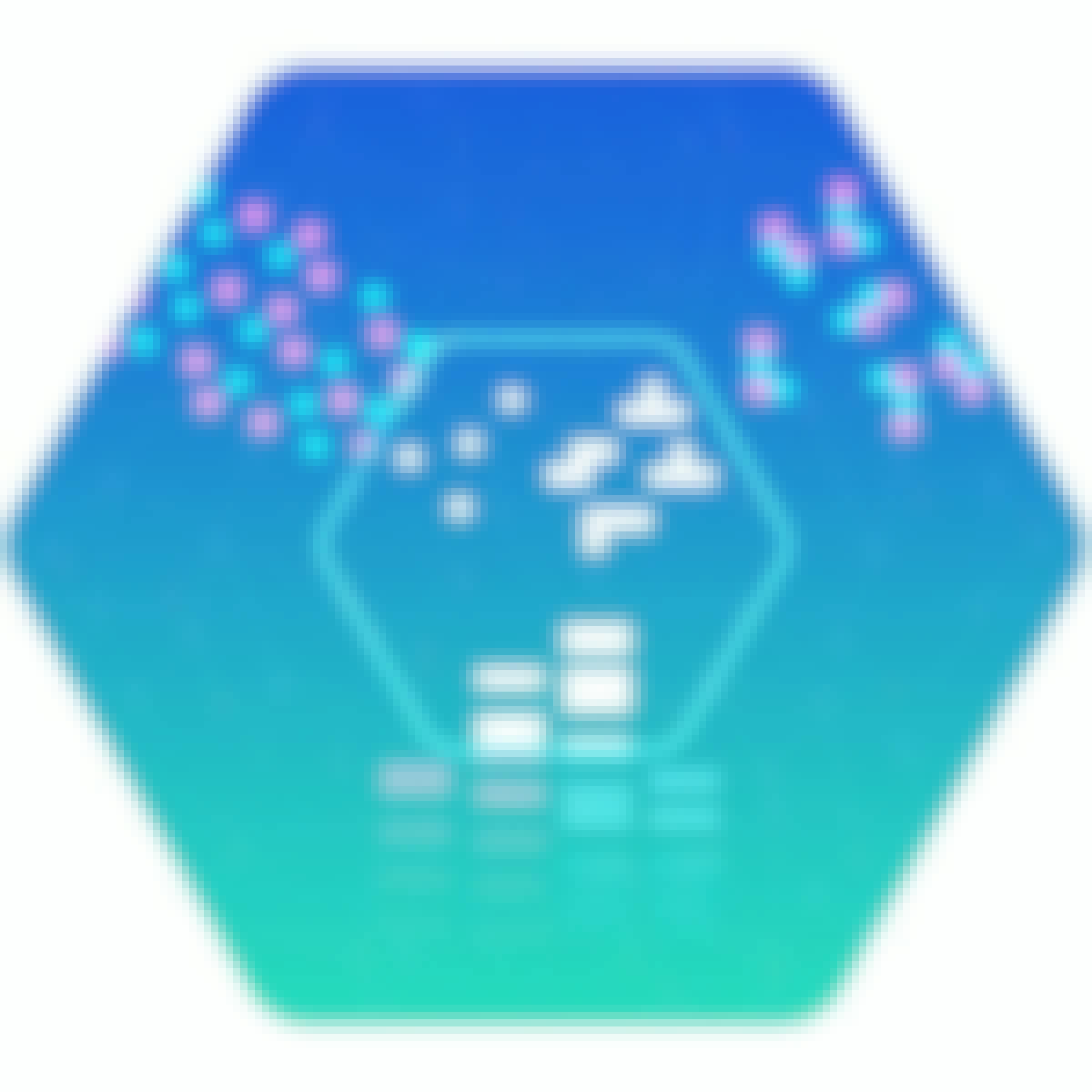Filter by
SubjectRequired
LanguageRequired
The language used throughout the course, in both instruction and assessments.
Learning ProductRequired
LevelRequired
DurationRequired
SkillsRequired
SubtitlesRequired
EducatorRequired
Explore the High Performance Computing Course Catalog
 Status: New
Status: NewGoogle Cloud
Skills you'll gain: Looker (Software), Data Analysis, Analytics, Big Data, Dashboard, Data Visualization Software, Data Sharing, Data Storytelling, Google Cloud Platform, Data Presentation, Interactive Data Visualization, SQL, Data Literacy, Data Warehousing, Data-Driven Decision-Making, Data Processing, Data Storage, Data Import/Export

Skills you'll gain: Application Performance Management, System Monitoring, Google Cloud Platform, Event Monitoring, Cloud Management, Performance Tuning, Debugging, Cloud Security, Continuous Monitoring, Cloud Applications, Cloud Computing Architecture, Query Languages, Data Import/Export

Skills you'll gain: Workflow Management, Service Improvement, Kanban Principles, Business Process, Customer Analysis, Process Analysis, Capacity Management, Process Improvement, Operational Excellence, Team Performance Management, Lean Methodologies, Continuous Improvement Process, Systems Thinking

Coursera Project Network
Skills you'll gain: Apple Xcode, Apple iOS, Debugging, iOS Development, Performance Tuning, Mobile Development Tools, Development Environment, Program Development, Application Performance Management, User Interface (UI)
 Status: New
Status: NewUniversity of Maryland, College Park
Skills you'll gain: Agile Project Management, Stakeholder Engagement, Leadership, Team Leadership, Team Motivation, Strategic Leadership, Environmental Resource Management, Sustainability Reporting, Natural Resource Management, Innovation, Complex Problem Solving, Strategic Partnership

Google Cloud
Skills you'll gain: Generative AI, Image Analysis, Deep Learning, PyTorch (Machine Learning Library), Keras (Neural Network Library), Computer Vision, Tensorflow

Google Cloud
Skills you'll gain: Gmail, Google Workspace, Generative AI, Prompt Engineering
 Status: Free Trial
Status: Free TrialSkills you'll gain: Dataflow, Data Pipelines, Debugging, Data Integrity, Data Infrastructure, Performance Tuning, CI/CD, Unit Testing, Data Processing, Real Time Data, Google Cloud Platform, Disaster Recovery, Integration Testing
 Status: NewStatus: Free Trial
Status: NewStatus: Free TrialUniversity of Colorado System
Skills you'll gain: Conflict Management, Intercultural Competence, Team Building, Diversity and Inclusion, Cultural Diversity, Team Leadership, Collaboration, Active Listening, Communication, Empathy, Leadership, Non-Verbal Communication, Self-Awareness

Skills you'll gain: Data Ethics, Artificial Intelligence, Business Ethics, Compliance Training, Governance, Regulatory Compliance, Google Cloud Platform, Ethical Standards And Conduct, Data Governance, Accountability, Artificial Intelligence and Machine Learning (AI/ML), Stakeholder Management

Skills you'll gain: Microservices, Application Deployment, API Design, Kubernetes, Service Level Agreement, Cloud Computing Architecture, Google Cloud Platform, Restful API, Network Architecture, CI/CD, DevOps, Cloud Storage, Cloud Security, Containerization, Software Design Patterns, System Design and Implementation, Service Design, Scalability, System Monitoring

Skills you'll gain: SQL, Big Data, Database Architecture and Administration, Database Design, Data Access, Performance Tuning, Data Warehousing, Data Security, Data Manipulation, Data Structures, Cloud Computing, Scalability
High Performance Computing learners also search
In summary, here are 10 of our most popular high performance computing courses
- Einführung in die Datenanalyse in Google Cloud : Google Cloud
- Logging and Monitoring in GC - Português Brasileiro: Google Cloud
- Implementa sistemas Kanban con STATIK: UBITS
- التصحيح باستخدام Apple XCode: تحقق من وجود أخطاء: Coursera Project Network
- Co-Production in Adaptive Environmental Management: University of Maryland, College Park
- Create Image Captioning Models - 日本語版: Google Cloud
- Gemini in Gmail - Español: Google Cloud
- Serverless Data Processing with Dataflow: Operations em Português Brasileiro: Google Cloud
- Communicating Across Cultures for Team Success: University of Colorado System
- Responsible AI: Applying AI Principles with GC - Italiano: Google Cloud










